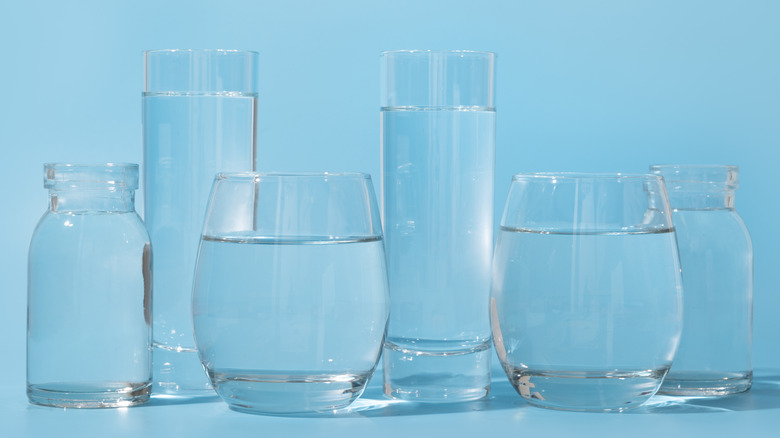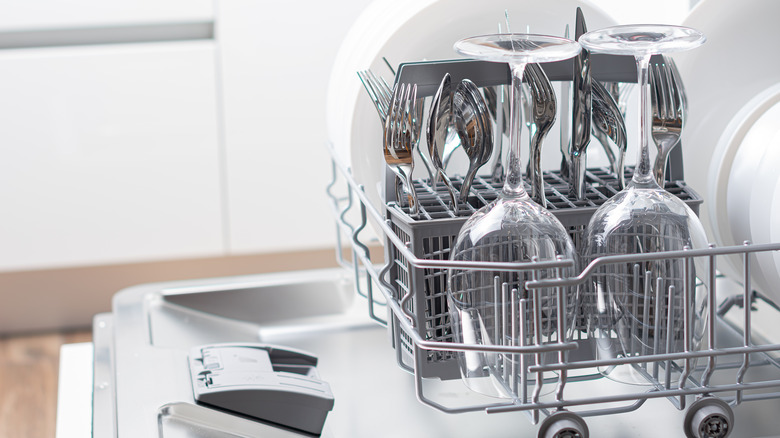Here's Why Your Kitchen Glasses Are So Cloudy
Whether you're serving iced tea, white wine, or just water, crystal clear glasses make for the best and most appealing presentation. So if you reach into your dishwasher or open your cabinets only to pull out glasses so cloudy that you can hardly see into them while they are empty, you might be pretty frustrated. After all, you did nothing but try to keep your once sparkling glassware clean.
As it turns out, your dishwasher is the source of the problem (via Martha Stewart). When the glasses run through the dishwasher cycle, whether you have hard or soft water, they take a beating. Hard water can cause mineral deposits to cook onto the glass, while soft water actually erodes the glass over time, resulting in a dull appearance. Your dishwasher can even cause scratches to the surface of the glass.
Unfortunately, the only surefire way to avoid these problems is to skip the dishwasher altogether and wash your glasses by hand. But if you have a bunch of dingy glasses, don't throw them out just yet.
This is how you can save already cloudy glasses
Just because your glasses have already become dull or slightly opaque does not mean that you can't repair the damage or change the appearance. According to Good Housekeeping, you can use two household staples, white vinegar and baking soda, to remove the mineral deposits. A simple mixture of the two should help wipe away the dinginess caused by hard water stains. Sadly, those damaged by soft water cannot be improved.
No one wants to wash all their glassware by hand. Luckily, you can still put your glasses in the dishwasher if you take a couple of steps to prevent fogginess in the future. First of all, use less dishwasher detergent, which can sometimes encourage cloudiness. The next trick is to stop the dishwasher before it reaches the drying cycle and remove anything that you want to keep from getting cloudy.

